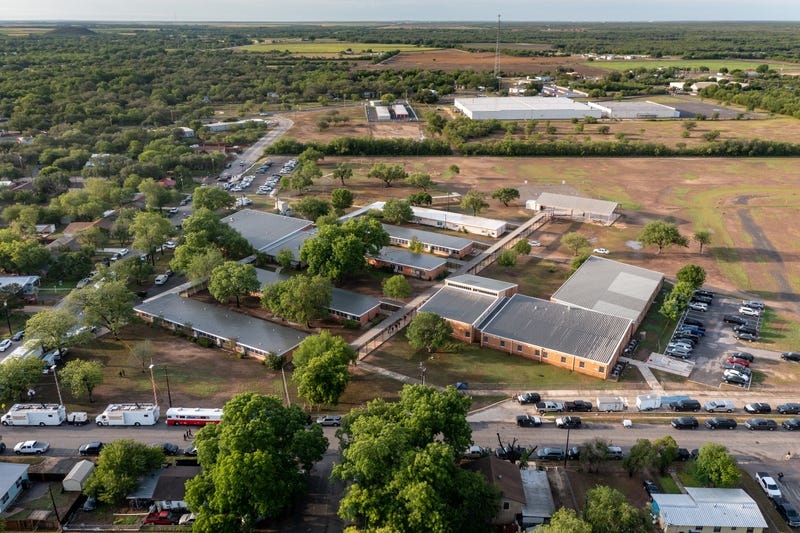
As a result of national media coverage of the shooting in Uvalde, many children may now have anxiety about returning to school. At Cook Children's in Fort Worth, doctors hosted a roundtable Wednesday on how to discuss the shooting with kids.
"They need to see that we care. They need to see us being able to express these difficult emotions, and that they're normal and would be expected after such a horrific, tragic event," said Dr. Lisa Elliott, a neuro-psychologist and manager of Cook Children's Behavioral Health Clinic in Denton.
Elliott urges parents to bring up the issue with their kids even if they do not ask. She says kids in preschool, kindergarten or early grades may not understand what happened, but students in elementary school, junior high or high school are already talking about it.
"It's all over social media, and it's on the news," Elliott said. "Yes, it's important to bring it because if you bring it up, your children know it's safe to talk about."
Elliott suggests asking kids in middle and high school directly about how they are feeling, what they need and how they are coping. She says, for kids in elementary school, parents may have to encourage them to talk about it and communicate through art or another activity.
For younger kids, Elliott suggests answering questions but without many details.
"When a parent is actually talking about these difficult and painful topics, we are literally modeling for our children that it's okay for them to do that as well," Elliott said.

Elliott says teachers should answer questions as well while also communicating safety measures in place at schools. She says parents and teachers should give kids a "sense of hope", referring to Mr. Rogers' advice to "look for the helpers" when kids see something scary.
Dr. Daniel Guzman, an emergency room doctor, is also the director of Cook Children's "Aim for Safety" program. The program aims to reduce gun injuries in kids.
"The vast majority we see here are unintentional, but guns and small people are a tragic combination," Guzman said. "You're literally playing Russian roulette with their lives."
He says parents who own guns should store them properly and talk to kids about gun safety, describing parents as their kids' "safety net".
"I'm not here to talk about whether people should have guns or not. I'm here to talk about how we can be safer if you do have those firearms," Guzman said. "It's not unlike swimming pools. How can you be safer if you have a swimming pool at your home?"
Elliott says kids may not talk about anxiety, but parents should watch for changes in their kids' eating or sleeping habits or if they lose interest in activities they had enjoyed. She says parents also should acknowledge their own anxiety of sending kids back to school.
Elliott says the issue of guns and access has become a "polarized, hate-filled political agenda," saying people have become more aligned with political parties than "moderation, common sense and what's good for the whole."
"We, as adults, are modeling very, very poorly, especially our political leaders," Elliott said. "It's from every side. There is not one side that's missing the boat on this one. They are doing a beautiful job, unfortunately, of modeling poor behavior."
She urges parents to limit kids' access to news and monitor their social media.
More information from Cook Children's on how to talk with kids about the shooting is available here.
LISTEN on the Audacy App
Sign Up and Follow NewsRadio 1080 KRLD

